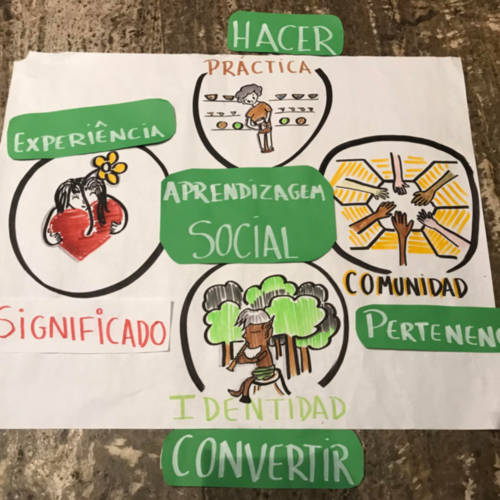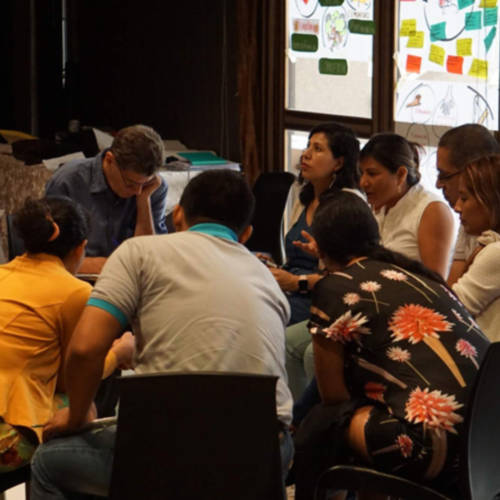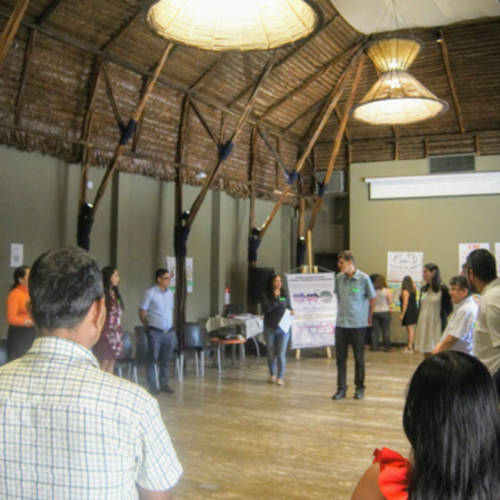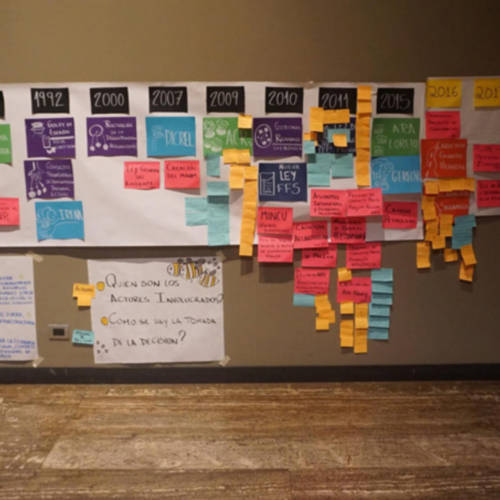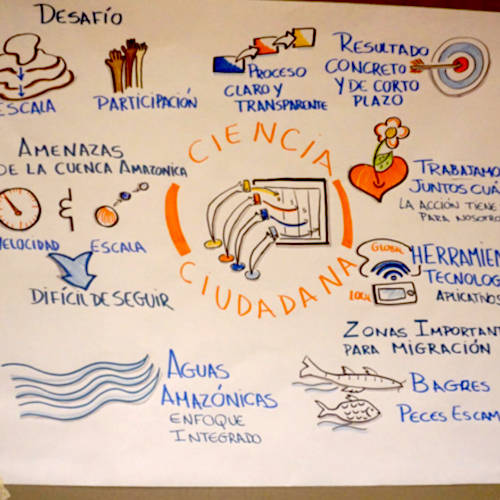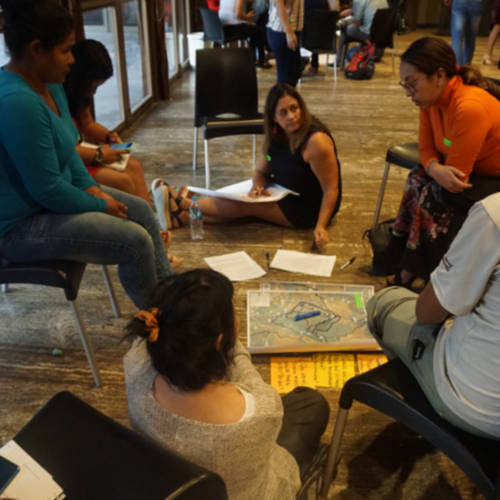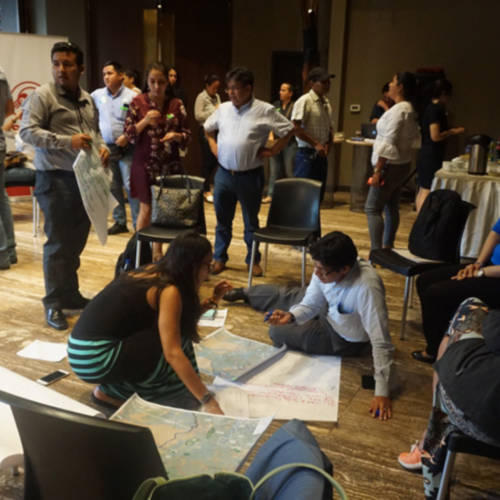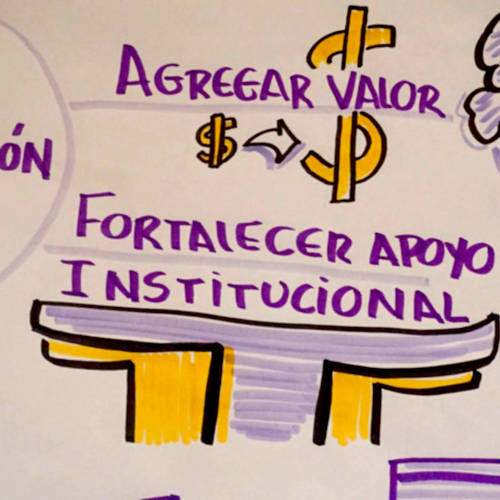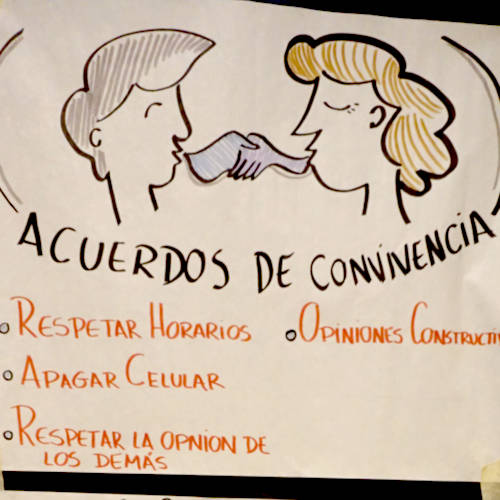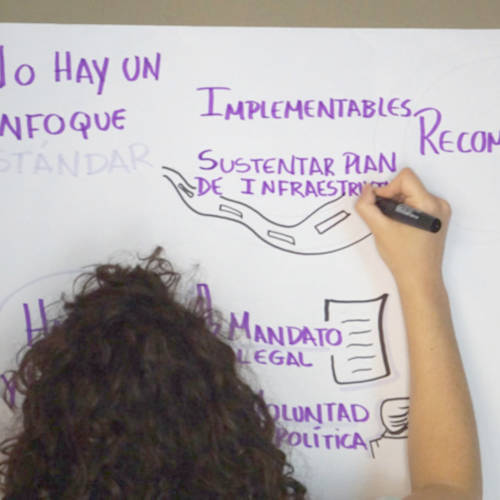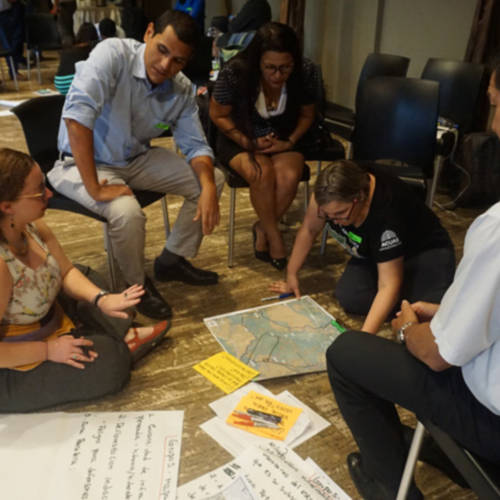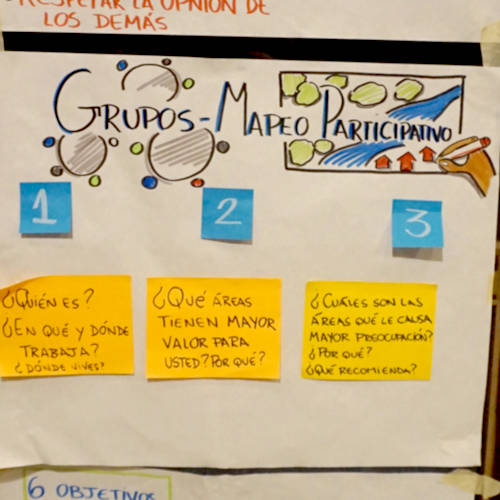The Governance and Infrastructure in the Amazon Workshop in the Loreto Mosaic took place on July 10-11, 2019 in Iquitos, Peru with 56 participants: 17 from different offices of the Loreto Regional Government (GOREL), 3 from Peruvian universities, 2 from the national government, 4 representatives of Protected Areas Management Committees, 1 representative of an indigenous organization, 21 from NGOs and 8 from the University of Florida.
The main objective of the workshop was to establish a Community of Practice and Learning on infrastructure and governance in Loreto. Specific objectives were:
- to promote interchange among the actors currently working on governance and infrastructure projects in Loreto;
- to achieve a shared understanding of the role of infrastructure projects in the visions of territorial planning in this region;
- to identify priority themes and geographic areas to address as a Community of Practice and Learning; and
- to explore guidelines and platforms for future interactions.


